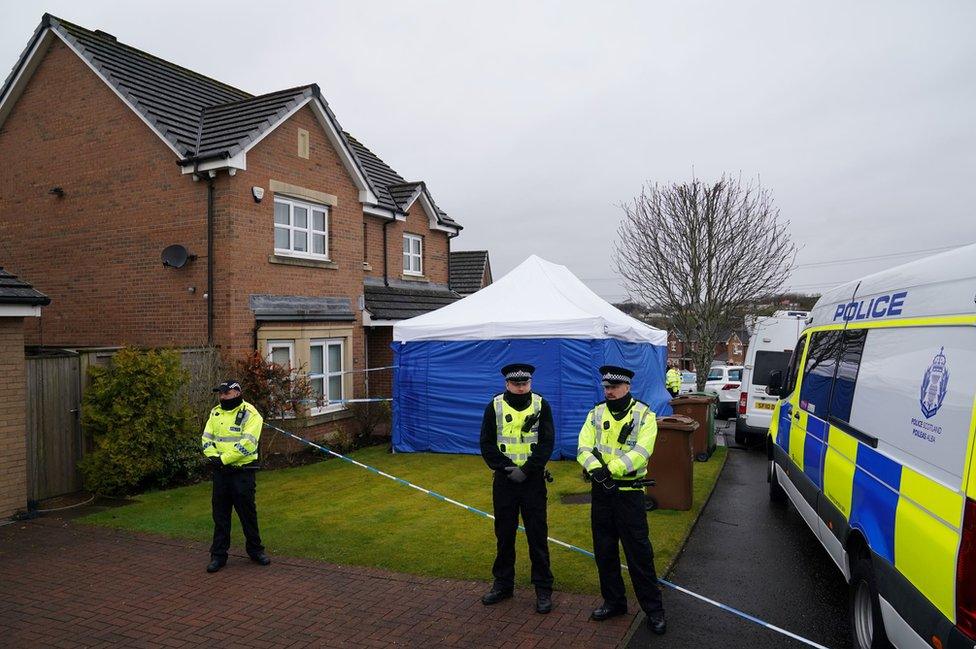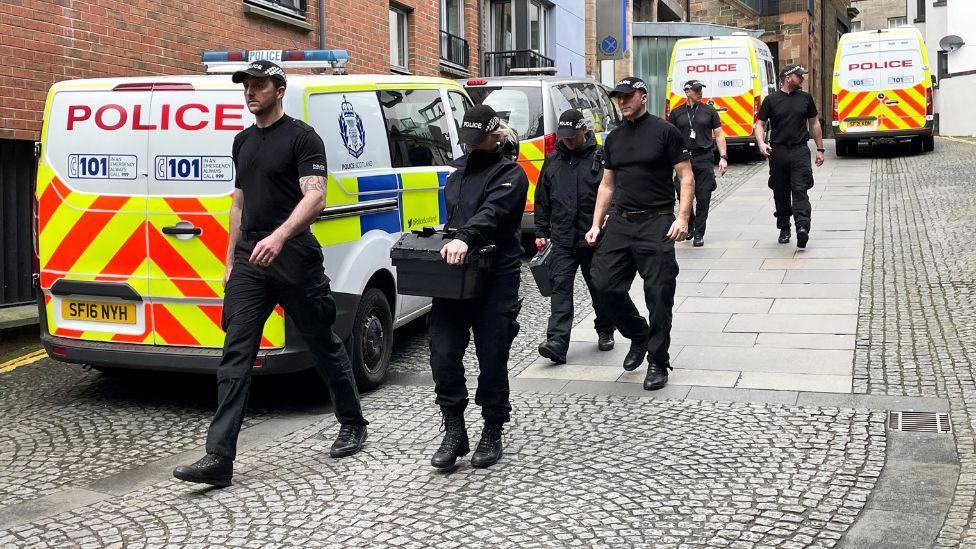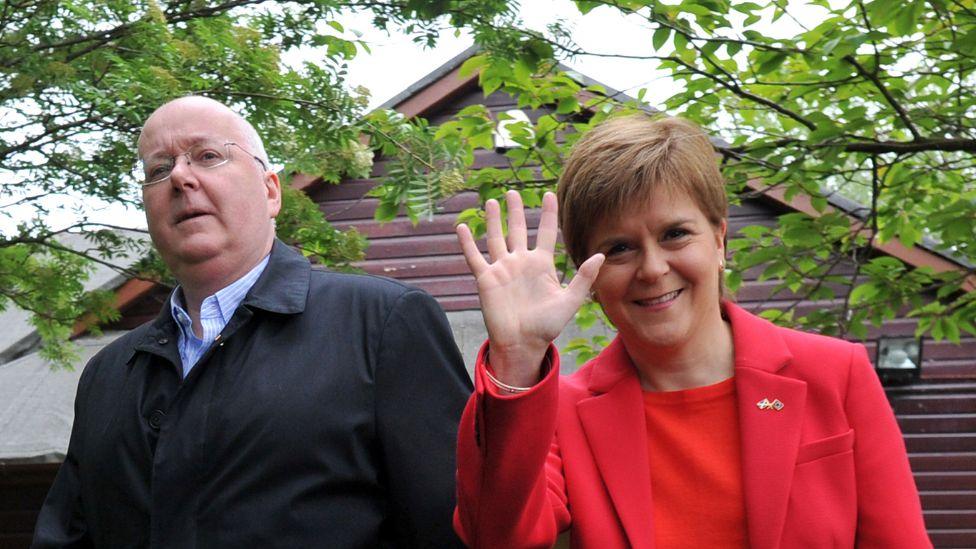Why was Nicola Sturgeon arrested and what happens next?
- Published

Police searched the Glasgow home on Ms Sturgeon and her husband Peter Murrell on on 5 and 6 April
Nicola Sturgeon has been released without charge pending further investigations after being arrested by police investigating the SNP's finances.
It was the latest remarkable twist in Police Scotland's ongoing Operation Branchform inquiry.
The former first minister was taken into custody and questioned by detectives at a police station after she attended voluntarily shortly after 10:00 on Sunday.
Officers had up to 12 hours from the time Ms Sturgeon was arrested before they had to decide whether to charge her with a crime or release her while their inquiries continue.
In the end, she was released from custody at about 17:25 on the same day - well before the deadline expired and just over seven hours since her arrest.
Shorty afterwards, she published a statement on Twitter saying that she knew "beyond doubt that I am innocent of any wrongdoing".
She also said she would "never do anything to harm either the SNP or the country" and that the situation she had found herself in earlier in the day was "both a shock and deeply distressing".
Despite her release, police have said the case remains active for the purposes of the Contempt of Court Act 1981.
It means everyone has to be careful about what they say to avoid potentially prejudicing any future trial.
This applies to politicians and members of the public on social media as well as broadcasters and newspapers and the rules around what can and cannot be said about this - or any other - case are interpreted much more strictly in Scotland than in some other parts of the world.
Scotland is not the United States, for example, where pundits merrily speculate about the guilt or innocence of a suspect long before the case goes anywhere near a jury.
Convictions for contempt of court can be punishable by up to two years in prison and/or an unlimited fine.
The police investigation into this case began almost two years ago when complaints were made relating to more than £660,000 that was donated to the SNP by activists.
The money was raised after the party sought funds for a future referendum campaign, and Police Scotland launched Operation Branchform to examine what happened to it.

Police have searched SNP headquarters in Edinburgh
Earlier this year, officers sent an initial report seeking advice and guidance from the body which prosecutes crimes in Scotland, the Crown Office and Procurator Fiscal Service (COPFS).
That advice was provided and the investigation continued.
On 5 April, officers searched Ms Sturgeon's home and the party's headquarters in Edinburgh and arrested her husband Peter Murrell, who was until recently the party's chief executive.
A luxury motorhome was also seized by police from outside the home of Mr Murrell's mother in Dunfermline.
Almost two weeks later, SNP treasurer Colin Beattie was arrested.
Mr Murrell and Mr Beattie were both treated as suspects and were taken into custody for the legally defined period of up to 12 hours of questioning before also being released pending further inquiries.
Under the Criminal Justice (Scotland) Act 2016, police can release a suspect for further investigation, but they can be re-arrested at a later date.
Over the coming days and weeks, the force is likely to continue to investigate and gather more evidence. They can also ask for more guidance from COPFS.
If a suspect is charged with a crime, they generally cannot be questioned again by the police although they can make a statement.

Peter Murrell was questioned for almost 12 hours after his arrest before being released pending further inquiries
Ultimately, the detectives will send what is called a standard prosecution report to COPFS.
Prosecutors will then consider whether there is sufficient evidence to suggest a crime was committed and the suspect was responsible.
They will take the public interest into account. That can be influenced by the particular circumstances of the case - for example, whether the person involved was in a position of trust or authority.
If they feel the evidence meets the necessary tests, the case will go to court.
Alternatively, COPFS can instruct the police to carry out further inquiries if they decide there is insufficient evidence.
If they are still not satisfied there is enough to justify a prosecution, the case would go no further.
The law officers at the top of the Crown Office will not be involved in this lengthy process.
The Lord Advocate Dorothy Bain KC and Solicitor General Ruth Charteris KC have dual roles as public prosecutors and principal legal advisors to the Scottish government, which has been run by the SNP since 2007.
For that reason, they will not be consulted when a decision is made about what should happen to Ms Sturgeon, Mr Murrell or Mr Beattie, with that task falling to others.
And for anyone wondering why the inquiry is called Operation Branchform, the titles for Police Scotland investigations are picked at random and the name does not actually mean anything.